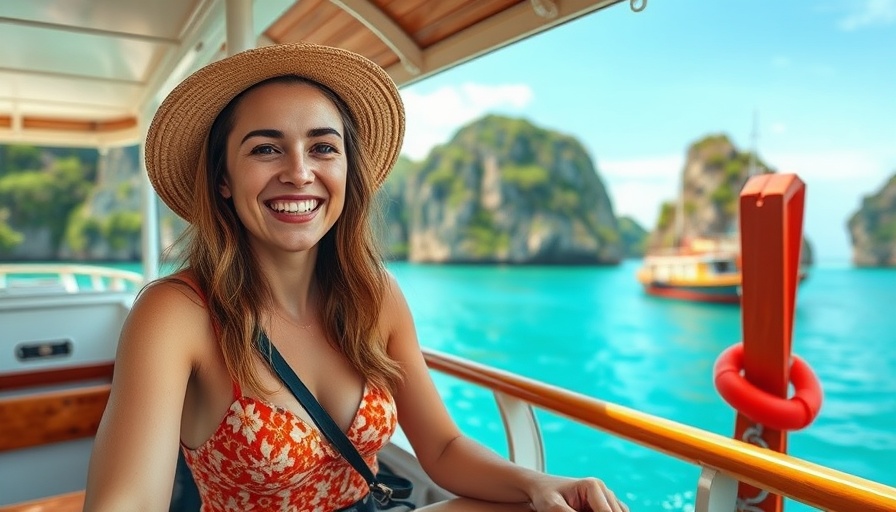
Thailand Ranks Among the Safest Destinations for Women Travelers
Thailand is currently basking in recognition as one of the top ten safest countries for female solo travelers, an honor given by Everly Life Insurance. Deputy spokesperson Sasikarn Watthanachan reported this noteworthy achievement, mentioning that Thailand secured the eighth spot in an index that assessed various safety indicators such as homicide rates, nighttime safety, and public attitudes toward violence against women. With the tourism pulse strong, this ranking is uplifting news for both women adventurers and the country's booming travel industry.
Understanding the Criteria for Safety Rankings
Safety rankings vary widely based on the data and criteria used. According to the survey by Everly Life Insurance, critical factors included women's perceptions of safety and real-world crime statistics, offering a more comprehensive view of travel safety. In a broader context, countries like Spain and Italy have been praised for similarly favorable conditions, establishing a benchmark for safety that other nations aspire to meet. The survey reinforces a growing trend among female travelers—prioritizing safety without compromising on adventure.
Why Solo Travel in Thailand is Becoming Popular
In the age where travelers are increasingly seeking places that promote safety and intrapersonal connections, Thailand shines for its efficient travel infrastructure, warm hospitality, and an array of activities tailored for solo adventurers. Websites like Adventurous Kate and Be My Travel Muse lauded Thailand for its traveller-friendly services and an atmosphere that fosters friendship and cultural exchange. Whether it's lounging in a quaint beach town or exploring bustling markets, opportunities for connection and adventure abound.
Embracing Sustainable Travel in Thailand
As environmental concerns rise, many travelers are seeking destinations that honor sustainability. Thailand is rising to the occasion through eco-conscious travel practices. Local initiatives focus on preserving natural beauty while inviting tourists to participate in responsible tourism. From visiting ethical wildlife sanctuaries to supporting sustainable vendors, female travelers can enjoy guilt-free adventures that prioritize the well-being of both the environment and local communities.
The Cultural Impact of the Safety Ranking
This recognition doesn't merely bolster Thailand’s tourism marketing strategy; it shines a light on the collaborative efforts of various sectors that make traveling within the country safer for women. Public safety initiatives, organized travel services, and a cultural atmosphere of friendliness contribute to this perception. Communities are embracing these changes, understanding that safe conditions can catalyze economic opportunities through tourism.
Personal Stories: Women Travelers Share Their Experiences
Many women cycling through Thailand have noted that their experiences were shaped not only by the beauty of the landscapes but also by their interactions with locals. Anecdotes have surfaced about spontaneous friendships formed during street food excursions or backpacking adventures, signifying that the warmth of Thai culture complements its physical safety. These personal stories resonate deeply, encouraging more women to consider Thailand as their next travel destination.
Future Trends: Increasing Interest in Solo Travel
With rising awareness around safety and inclusive experiences, the trend of female solo travel is anticipated to expand. As Thailand positions itself as a premier destination for women adventurers, this ranking can stimulate similar initiatives in neighboring countries, enhancing travel safety and increasing female engagement within the tourism sector. The future looks bright for women explorers who wish to discover the world while feeling secure.
As the world continues to evolve and travel preferences shift, it’s essential for travelers to make informed choices that align with their values. Experience the enchanting landscapes and rich culture of Thailand, all while promoting responsible tourism practices for yourself and future generations.
 Add Row
Add Row  Add
Add 



 Add Row
Add Row  Add
Add 


Write A Comment